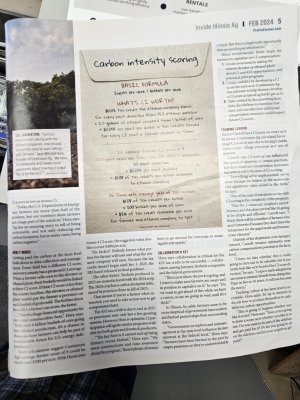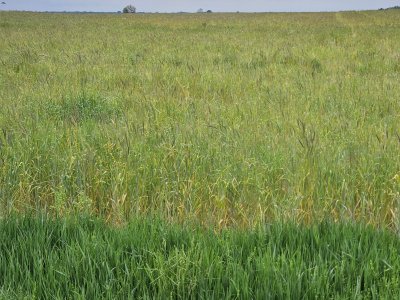Brokenbear
5 year old buck +
SD I hear what you are saying but I think the game we speak of has a lot of variables that studies just have not been made on ..
mono culture vs multi species plantings are.. in a way not even comparable ..
Fair tolerance to "some" weed presence for plotters vs no tolerance of weeds for mono row croppers ..
A vast array of plant species rotating in and out of a plotters mixes often featuring spring,summer, fall and winter seeding vs one crop/yr or 2/yr occasionally and rare is the 3/yr
And of course as plotters we do not exactly raise a cash crop but we do harvest the gratification of rebuilding and or protecting the soil
We live in both hills and flat ground and I can tell you there are guys doing green and mono type crops successfully .. they do have dirt after beans/corn harvest for two weeks then up comes the wheat, barley, radishes or oats ..come spring chem kill into foot tall weed free wheat and the next no-till mono crop goes in ..
the above "cycle" is claimed by those doing it to be far less fuel, chemical and labor ..less yield ..yes but less input cost
I also suspect another couple of wild cards are in play with the guys doing the mono green cycle ..the farmer has other businesses than just farming so freed up to do other income producing actions I think plays a roll ..another and probably bigger is weather in that they can strike quicker and on more acres with no-till vs the traditional tillage process where each step needs the weather just right
Last also is soil type and zone .. which no doubt is a factor to what will and won't work
Bear
mono culture vs multi species plantings are.. in a way not even comparable ..
Fair tolerance to "some" weed presence for plotters vs no tolerance of weeds for mono row croppers ..
A vast array of plant species rotating in and out of a plotters mixes often featuring spring,summer, fall and winter seeding vs one crop/yr or 2/yr occasionally and rare is the 3/yr
And of course as plotters we do not exactly raise a cash crop but we do harvest the gratification of rebuilding and or protecting the soil
We live in both hills and flat ground and I can tell you there are guys doing green and mono type crops successfully .. they do have dirt after beans/corn harvest for two weeks then up comes the wheat, barley, radishes or oats ..come spring chem kill into foot tall weed free wheat and the next no-till mono crop goes in ..
the above "cycle" is claimed by those doing it to be far less fuel, chemical and labor ..less yield ..yes but less input cost
I also suspect another couple of wild cards are in play with the guys doing the mono green cycle ..the farmer has other businesses than just farming so freed up to do other income producing actions I think plays a roll ..another and probably bigger is weather in that they can strike quicker and on more acres with no-till vs the traditional tillage process where each step needs the weather just right
Last also is soil type and zone .. which no doubt is a factor to what will and won't work
Bear



